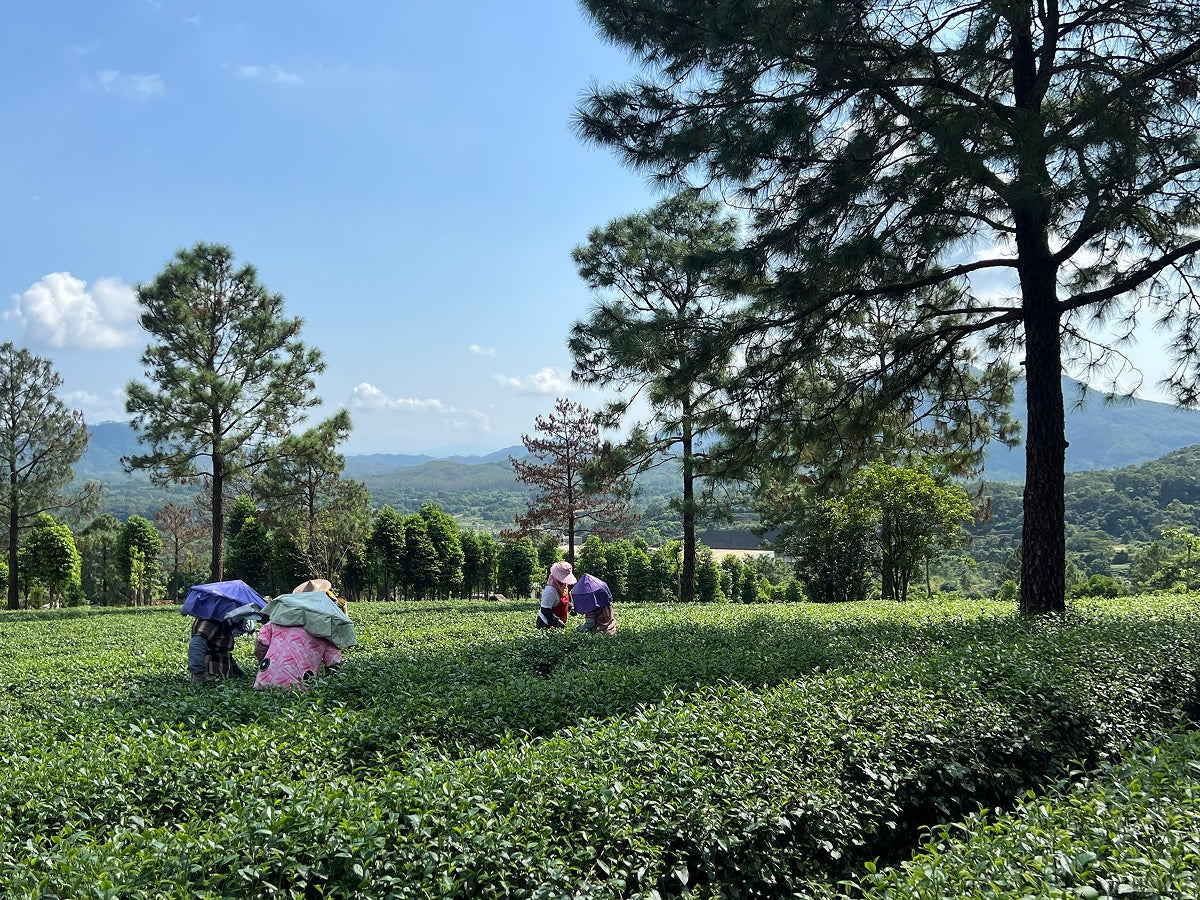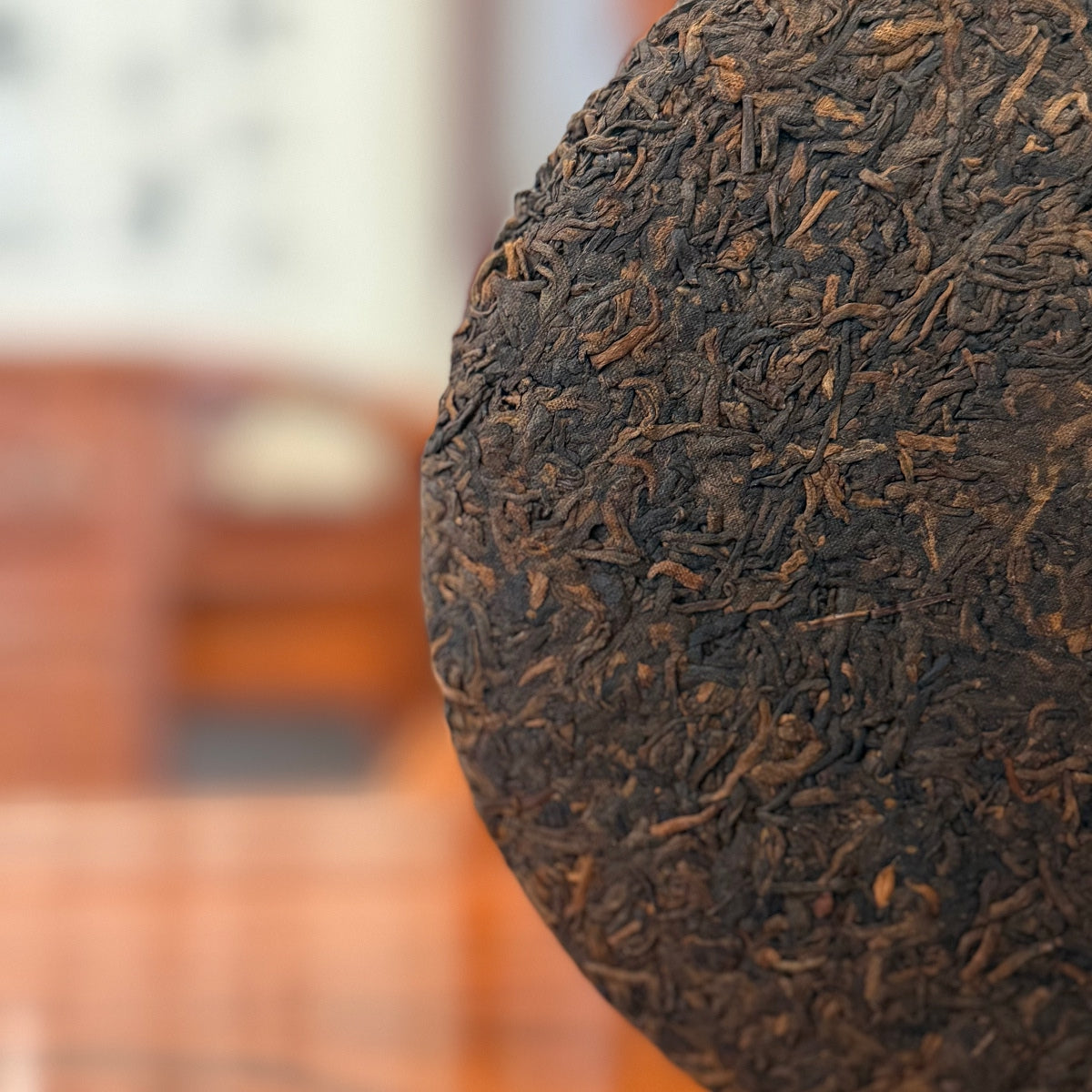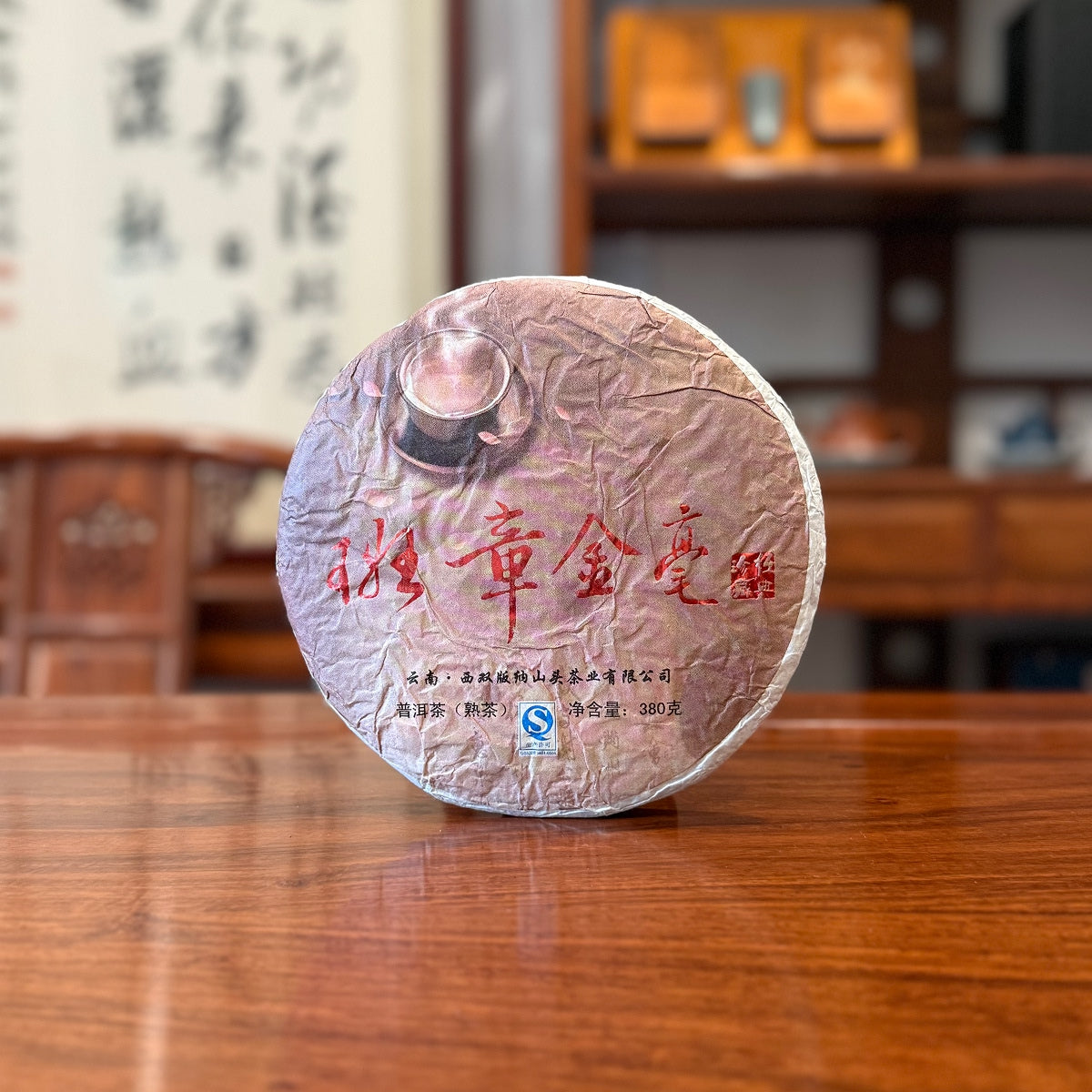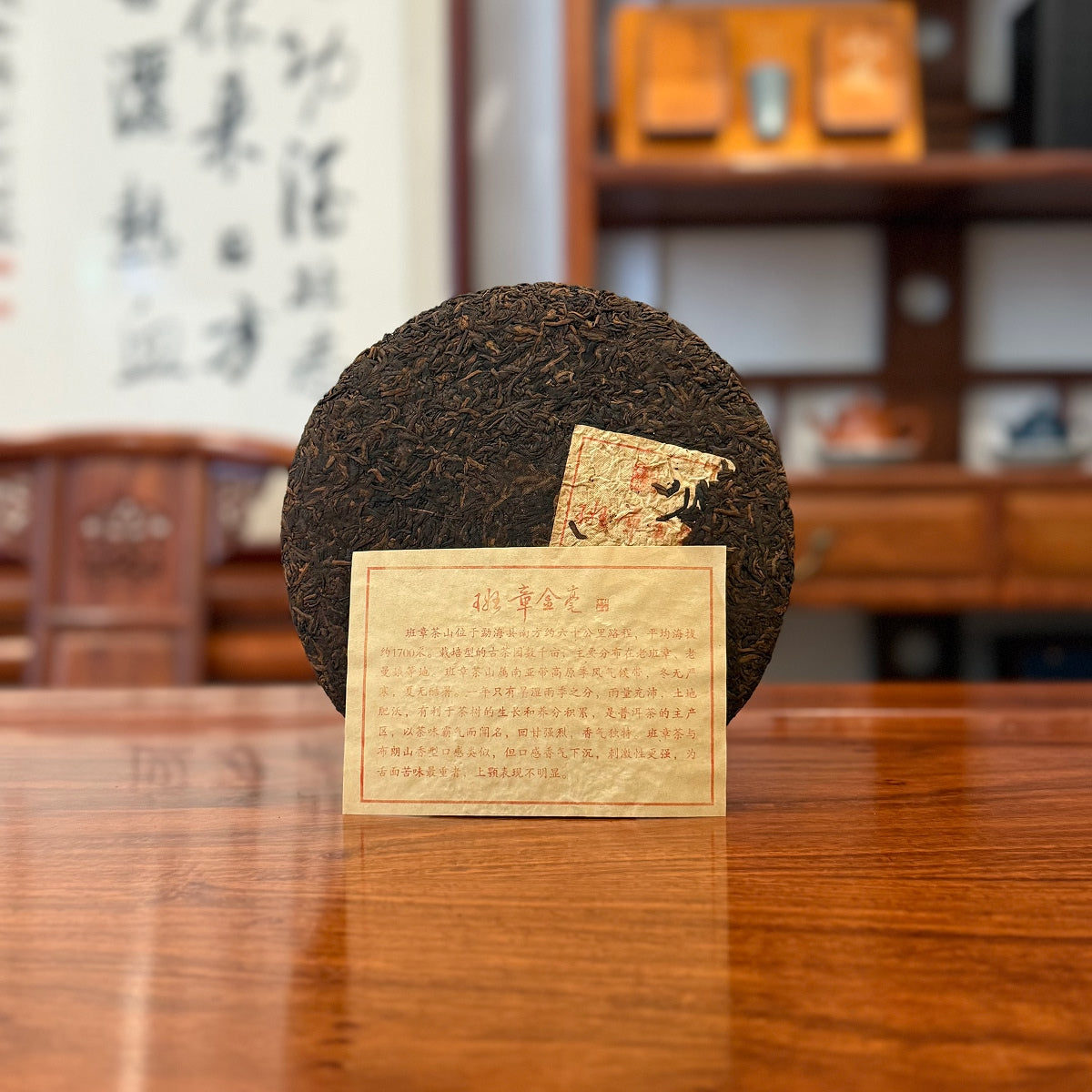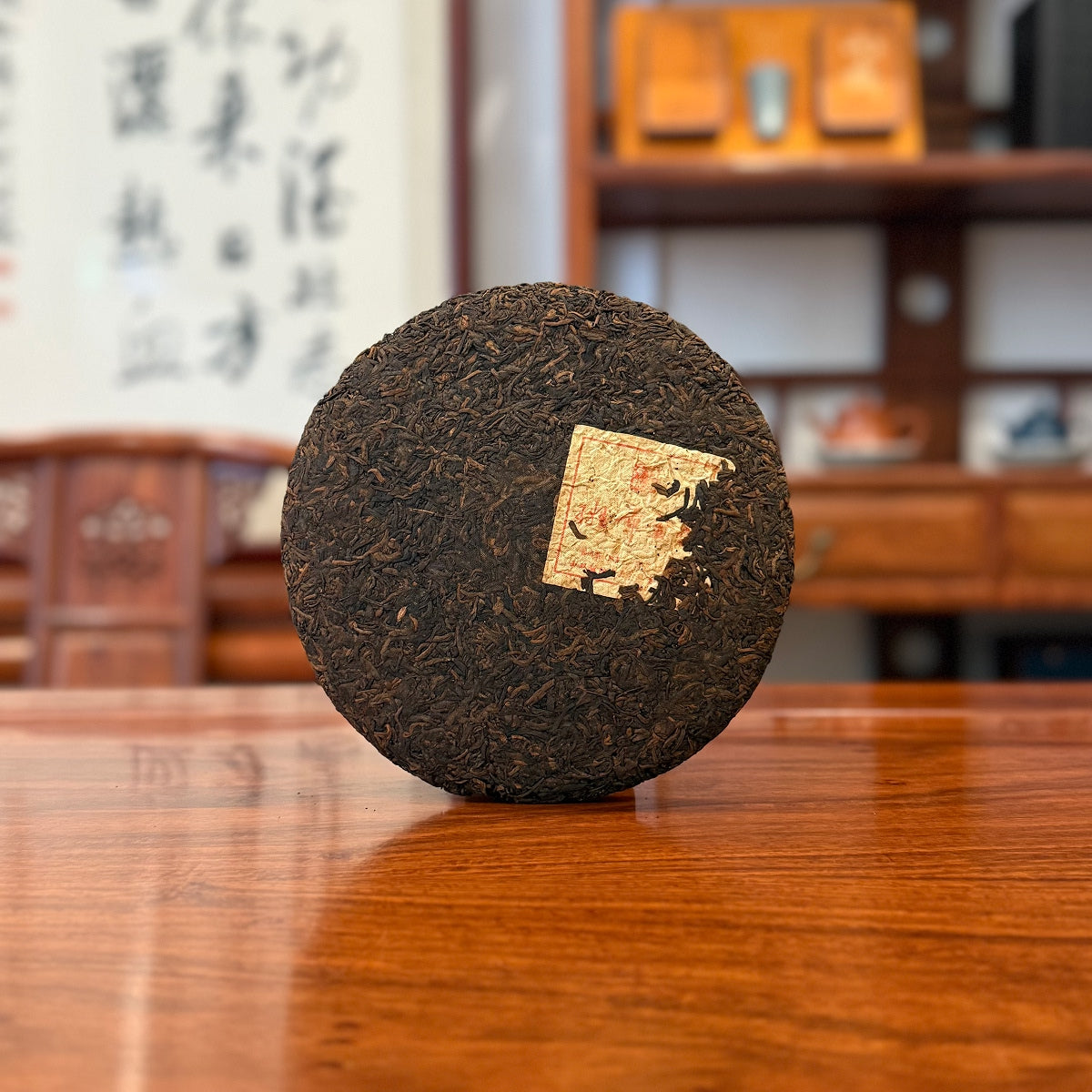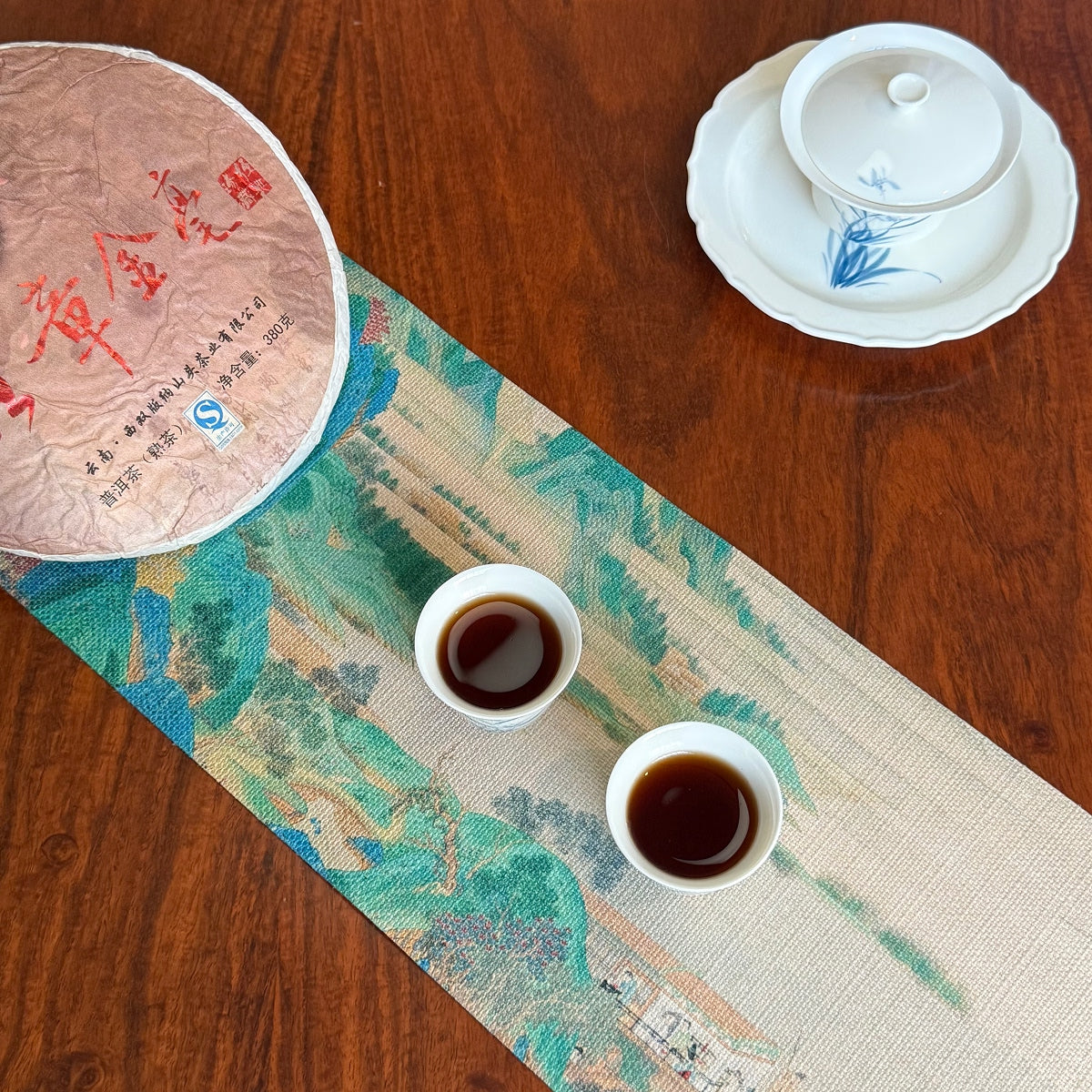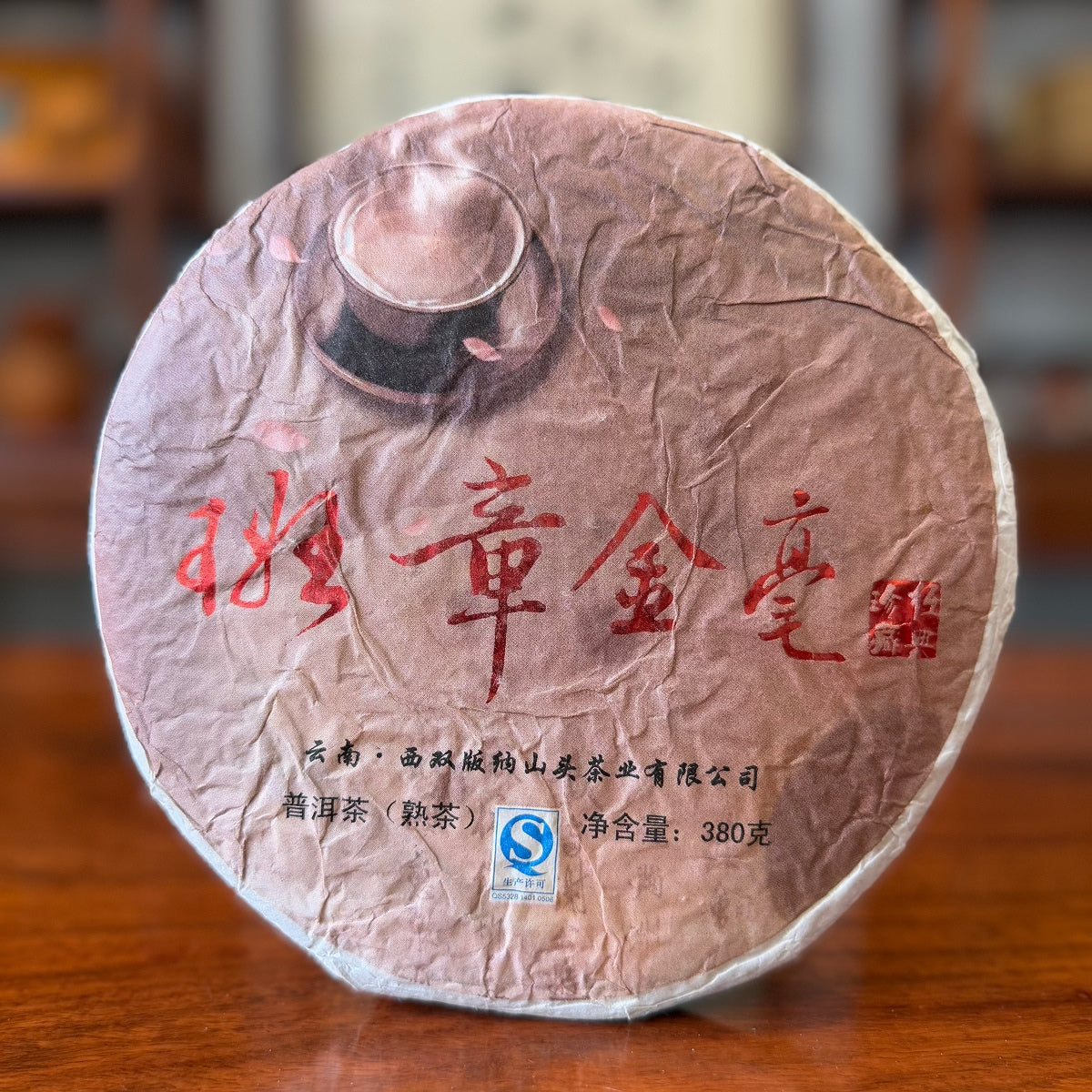
2008 Ban Zhang Golden Tips Ripe Pu-erh Tea Cake
Yunnan Pu-erh (Pu’er)
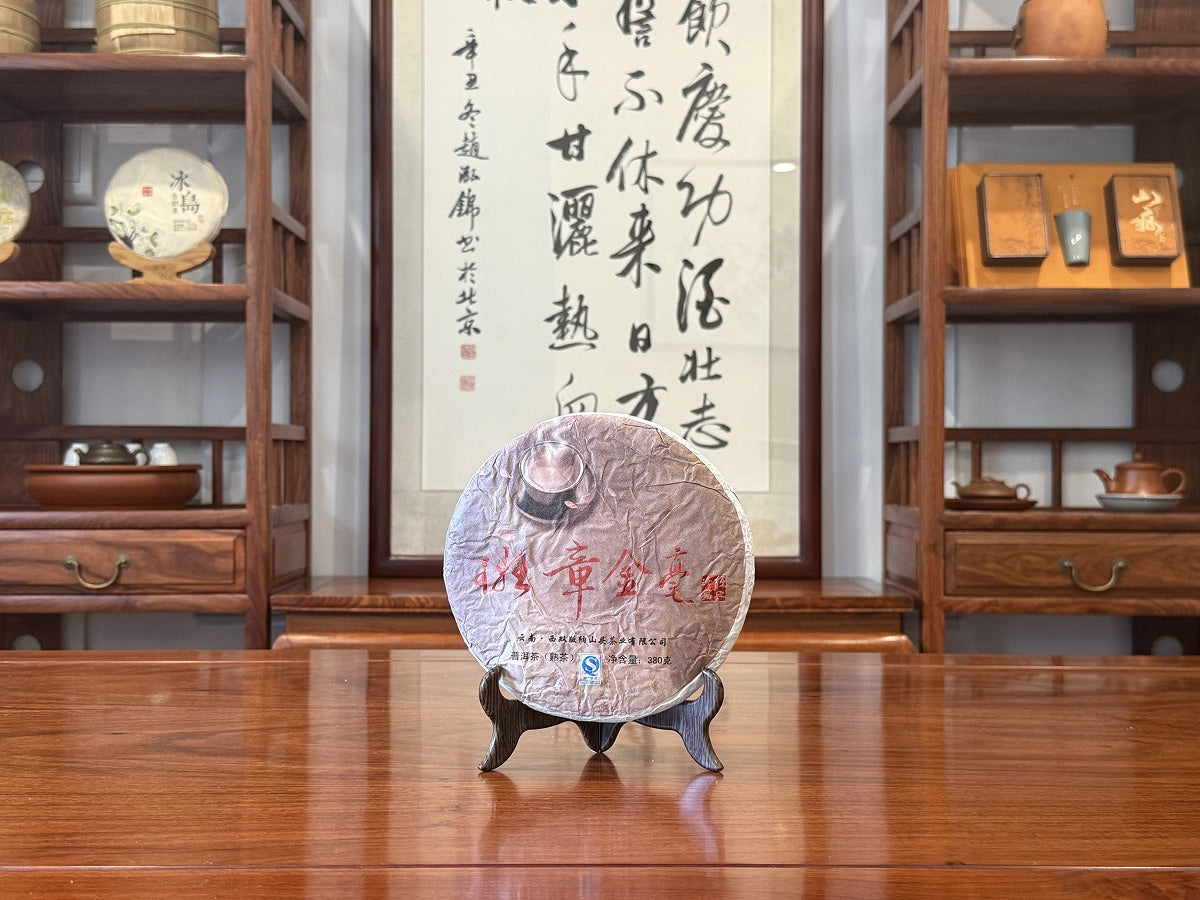
This Ban Zhang Golden Tips Ripe Pu-erh Tea Cake originates from Yunnan and was harvested in 2008, named after its place of origin. Ban Zhang Village, located in Menghai County, Xishuangbanna Dai Autonomous Prefecture, Yunnan, is home to both centuries-old tea gardens and younger plantations established in recent decades. It is regarded as one of China’s most prestigious Pu-erh tea regions.
Ban Zhang Pu-erh is celebrated for its rich liquor, strong tea character, and full-bodied texture, earning it the title of the “King of Pu-erh Tea.”
What Are Golden Tips?
“Golden Tips” refer to the tender buds of the tea leaves, typically covered with golden hairs. These fine hairs are rich in beneficial compounds, including polyphenols, catechins, and caffeine, which enhance both the quality and the distinctive aroma of the tea.
The presence of golden tips is a hallmark of premium-grade Pu-erh tea leaves, indicating high-quality raw material and careful harvesting.
Ripe Pu-erh Production
Unlike raw Pu-erh (Sheng Pu’er), ripe Pu-erh (Shou/Shu Pu’er) requires a more intricate production process, including an additional fermentation step under carefully controlled temperature and humidity.
This process builds upon the foundation of raw Pu-erh, producing a uniquely mellow character with a silky-smooth, rounded texture.
Tea Harvesting and Aging
This 2008 Ban Zhang Golden Tips Ripe Pu-erh Tea Cake is crafted from the tender buds of large-leaf tea trees in Ban Zhang Village, handpicked in early spring before the Qingming Festival (February–April, before the rainy season).
Weighing an uncommon 380 grams (instead of the standard 357 grams), it has been meticulously aged for 17 years, allowing the tea to develop a deep, rich, and complex profile.
Tasting Notes
The tea liquor is clear and luminous, with a reddish-brown hue reminiscent of polished amber.
- Initial Taste: Smooth and full-bodied, with sweet and vibrant notes.
- Aroma: Delicate, lingering aged aromas—hints of wood and ripe fruit gently lingering on the tongue and in the nose.
- Mid-Palate: Thick and harmonious, with velvety sweetness circulating across the mouth.
- Finish: Sweetness gradually intensifies, long-lasting and elegant, leaving a deep, enduring aftertaste.
Recommended For
This tea is highly recommended for lovers of ripe pu-erh, offering a classic example of high-quality tea from one of the most esteemed Pu-erh regions in Yunnan, crafted from carefully selected buds.
Packaging and Aging Notes
Please note that the packaging of aged Pu-erh tea cakes may naturally show creases or slight wear. This is normal and does not affect the quality or flavor of the tea.
These marks reflect the tea’s storied journey over time. As Pu-erh tea continues to age, its character and aroma deepen, revealing increasingly rich and complex layers of flavor.

Gongfu Tea Brewing Guide
(Traditional Method)
| Water Temperature | 100°C (212°F) |
| Tea-to-Water Ratio | 9g tea per 150ml water |
| Steeping Time | |
| Brews 1–5 | Steep for 10–15 sec |
| Brews 6–10 | Steep for 15–20 sec |
| Brews 11–15 | Steep for 20–25 sec |
| Brews 16+ | Steep for 25+ sec |
Tips: Tea masters recommend steeping times based on each tea's unique flavor, starting the timer after pouring the water.
Common Brewing Guide
(Easy Everyday Preparation)
| Water Temperature | 100°C (212°F) |
| Leaf-to-Water Ratio | 3g per 100ml |
| Steeping Time | About 1-2 minutes |
| Subsequent Infusions | Increase by 30 seconds each time |
Tips: You can adjust the steeping time or leaf-to-water ratio to suit your taste—shorten the infusion for a lighter brew or extend it for a stronger one.
